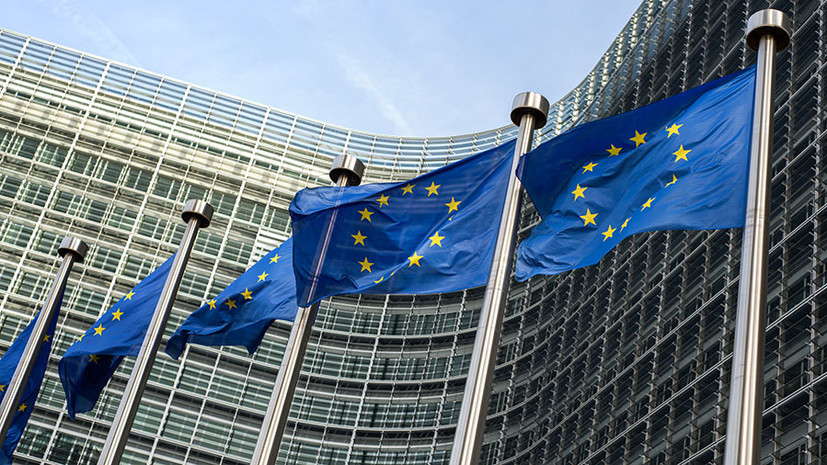The European Union does not recognize the official results of the presidential elections in Belarus, said the head of the European Council Charles Michel after the emergency summit.
The EU intends to soon impose sanctions against "a significant number of those who are responsible for the violence in the republic and election fraud." Michel also said that the European Union will study the possibility of applying restrictive measures against the Belarusian leader Alexander Lukashenko.
Let us remind you that the presidential elections were held in Belarus on August 9. According to the final data of the CEC of the republic, the current head of state Alexander Lukashenko won 80.1% of the vote. Of his opponents, Svetlana Tikhanovskaya received the greatest support - 10.12%.
After the announcement of the preliminary results, large-scale protests began in the republic, which continue to this day. The demonstrators demand Lukashenka's resignation from the post of head of state and new elections. In the early days, there were clashes between security officials and demonstrators, but later the actions began to take place peacefully.
Following an emergency EU summit, German Chancellor Angela Merkel said that EU leaders condemned the violence against demonstrators in Belarus and called on the country's authorities to stop using force against protesters. The Chancellor noted that the EU is in favor of "a national dialogue, as the opposition in Belarus is proposing." At the same time, she noted the inadmissibility of external interference in the affairs of the republic.
“Belarus must find its own way on its own, this must happen through a dialogue within the country, there must be no outside interference,” RIA Novosti quotes Merkel. At the same time, the chancellor expressed the point of view that "the elections in Belarus were dishonest and unfair."
The head of the European Commission Ursula von der Leyen said that the EU will allocate an additional € 53 million “to support the Belarusian people in this difficult time”.
She clarified that € 2 million is intended for “victims of repression and violence”, € 1 million - to support “civil society and independent media”, € 50 million - to the healthcare sector to fight the coronavirus.
In addition, von der Leyen said that the European Union is ready to accompany "a peaceful democratic transition of power in Belarus."
Among other things, the head of the EC also stated that the citizens of the republic should themselves determine their future and choose leaders. According to her, “it is the Belarusians who demand to organize truly fair and free elections”.
To gallery page
Note that a day earlier, Russian President Vladimir Putin held telephone talks with French leader Emmanuel Macron and German Chancellor Angela Merkel. Both conversations were devoted to the situation in Belarus and took place at the initiative of the European leaders.
Subsequently, the Kremlin announced the inadmissibility of outside interference in the situation in Belarus. On August 19, the press secretary of the Russian President Dmitry Peskov spoke on this issue.
“We state with regret that attempts at such interference, direct interference, unfortunately, take place, we ourselves consider such interference unacceptable,” he said.
Russian Foreign Minister Sergei Lavrov noted that the people of Belarus can figure out the current situation on their own. The diplomat expressed the hope that the residents of the republic "will not follow the lead of those who need Belarus solely in order to master the geopolitical space."
“I am convinced that the Belarusian people in their wisdom can figure out the current situation on their own,” Lavrov concluded on the air of the Russia 1 TV channel. At the same time, he said that the elections in Belarus cannot be called ideal, but this circumstance cannot be used to undermine the dialogue between the authorities and society.
At the same time, Lukashenko himself asked Vladimir Putin to convey to Angela Merkel a request not to interfere in the affairs of Belarus. Earlier, the Chancellor of Germany said that the President of the Republic refused to speak to her by telephone.
Lukashenko's press secretary Natalya Eismont said on the air of "Russia 1" that Minsk hopes that the West will not support forces seeking to destabilize the situation in the republic.
“Based on this, the president of our country asked his Russian counterpart to tell Mrs. Merkel so that Germany, and the whole of Western Europe, would not interfere in the internal affairs of Belarus, as is happening now,” Eismont explained.
She also explained Lukashenka's refusal to talk to Merkel. According to the press secretary of the Belarusian leader, the head of state considered that personal negotiations with the chancellor while he was talking with Vladimir Putin would look “at least undignified”.
Meanwhile, the Belarusian president instructed to strengthen border security. According to the head of state, this measure is needed to "prevent militants, weapons, ammunition, money from other countries from entering Belarus to finance the riots."
“They pay people who want to make money. Stand with the flowers, do something else. I do not want to say that everyone is like that. But a lot of money is received, and moreover, openly, ”Lukashenka said.

